If you are a part of the marketing world, then you know that the biggest keyword for a while now has been “engagement”. In the context of digital marketing, engagement is defined as how consumers interact directly with your brand. This can be through many different actions, including clicks, likes, comments, and shares. Engagement is important to your brand because it not only increases your reach and relevance over the internet, it can potentially create profitable relationships between you and your customers.
Strategies that focus on stimulating this kind of behavior in your audience are critical to creating a better brand experience, which leads to a higher conversion rate. That is where Engagement Marketing comes into play, and it is what we are discussing in this blog post. So if you don’t know what Engagement Marketing means or want to learn about ways to apply it to your business, keep reading.
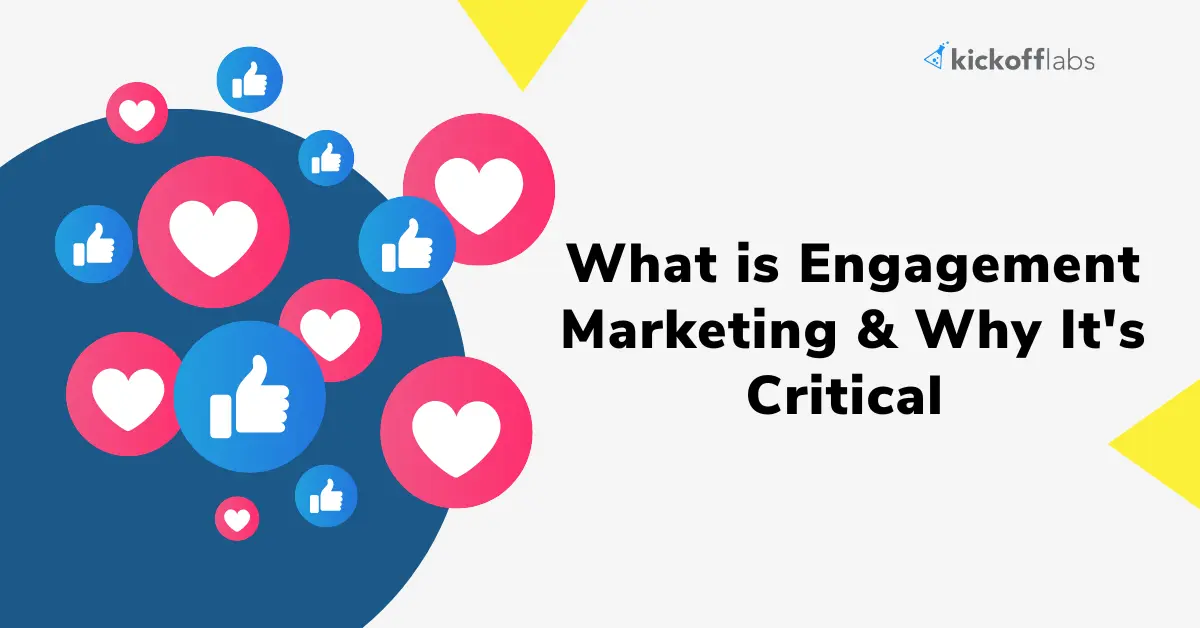
What is Non-Engaged “One-Way” Marketing?
Non-engaged or “one-way” marketing is defined as anything that you put out into the world for marketing that does not get active participation from your audience. Some examples of non-engaged marketing include advertisements, newsletters, blog posts, or the posting of any first party content. Another way to conceptualize non-engaged marketing is as one of those generic emails you get from a big chain retailer. You probably see a couple dozen of them in a day, and you most likely delete it without even opening it–that is non-engaged marketing. You do not engage with the content, nor were you ever enticed to.
What is Engagement Marketing?
Engagement Marketing is an umbrella term for strategies, techniques, and practices that are focused on increasing audience participation. If a customer engages with your content, it is easier for you to guide them to the purchase decision. In this sense, a customer is less a recipient of a generalized marketing message and more an interactive collaborator. By employing high quality targeted content in a two way conversation, your business creates meaningful interactions with your audience.
What are the Benefits of Engagement Marketing?
There are many potential benefits to utilizing Engagement Marketing strategies. Obviously, one of these benefits is that a solid Engagement Marketing plan eventually leads to an increase in sales. But that should be a long term goal, not a short term one, and there are several other ways Engagement Marketing can benefit your business in the here and now.
For example, if you consider your digital strategy as a whole, you need two basic things in place to be successful: an attractive website and a high degree of authority. But another thing that is crucial to your digital strategy’s success is engagement. Even if you have a solid SEO strategy that gets potential customers on to your website, they must remain engaged in order for them to become a lead and eventually convert. That’s just one reason why Engagement Marketing is so important, and only one example of how it can benefit your business.
Check out some others below:
- Increase in brand authority: It’s challenging to get your blog in the first SERPs results. SEO techniques are necessary to please Google’s algorithm, and one criteria is domain authority. By focusing on lead engagement, you gradually raise your ranking by increasing domain authority.
- Knowledge about your buyer persona: The buyer persona is the basis for marketing strategies, so it is important to know as much about your target audience as you can. If a potential customer engages with your content, this generates insights into their behavior.
- Strategy optimization: Once you understand your buyer persona, optimize your strategy. For example, if you put links into your messages, you can measure which campaigns receive the most clicks. Then apply A/B tests to figure out which elements are effective and increase the success rate.
- Organic brand reach: Good engagement increases the reach of your channels in an organic way. This does not just apply to digital channels, because engaged consumers will share positive brand experiences. This leads to more opportunities that come from outside a search engine.
- Influencer identification: Over time, you will see who engages the most with your brand. These people are the influencers that you should start paying attention to. You will want to include them in your marketing plans.
- More effective customer touches: The old adage says it takes seven customer interactions to lead to a purchase. Engagement marketing creates more opportunities to create a customer touch, educate them, and get closer to the purchase.
What are Examples of Engagement Marketing?
There are many different ways to conduct Engagement Marketing. Remember that no matter what type of content you publish, it must resonate with your audience, complete the goals you set at the beginning of your campaign, and influence your audience to engage with your brand.
Additionally, you cannot be afraid to change directions. If you think your content angle is not working, scrap it or replace it with something new. A great tip is to learn from your competitors by visiting their social media or websites. You will no doubt spark your own content creation ideas once you see what others in your niche are doing.
Here are some examples of Engagement Marketing:
- Polls and surveys All it takes is a simple click for your audience to engage with a poll or survey on Facebook or Twitter. This is a quick way to obtain some targeted information, which you can then go on to use as you wish.
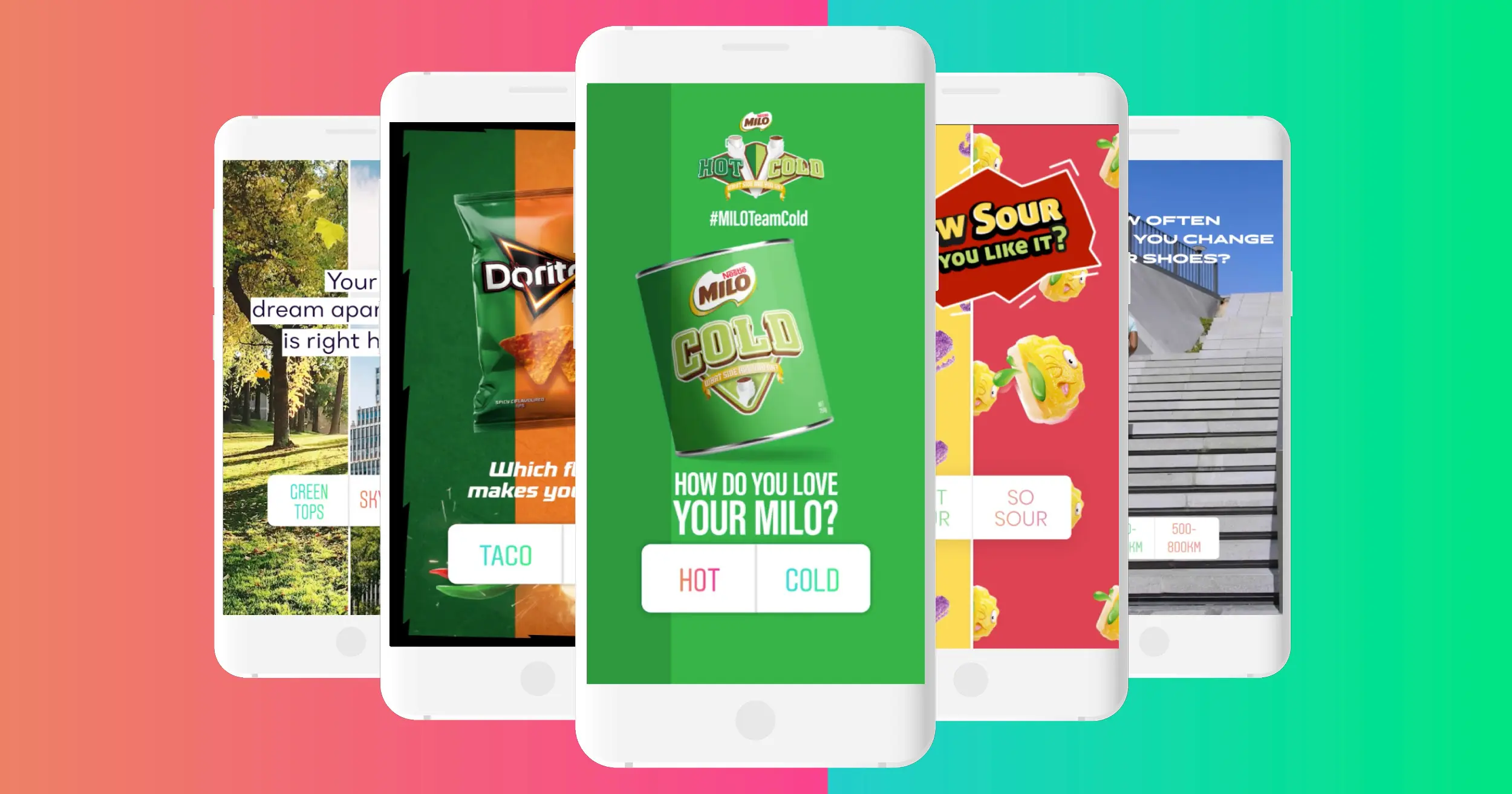
- Question boxes Through the power of Instagram stories, you can get your audience to answer a specific question using a question box. Or you can turn it around on them and have them ask you the questions.
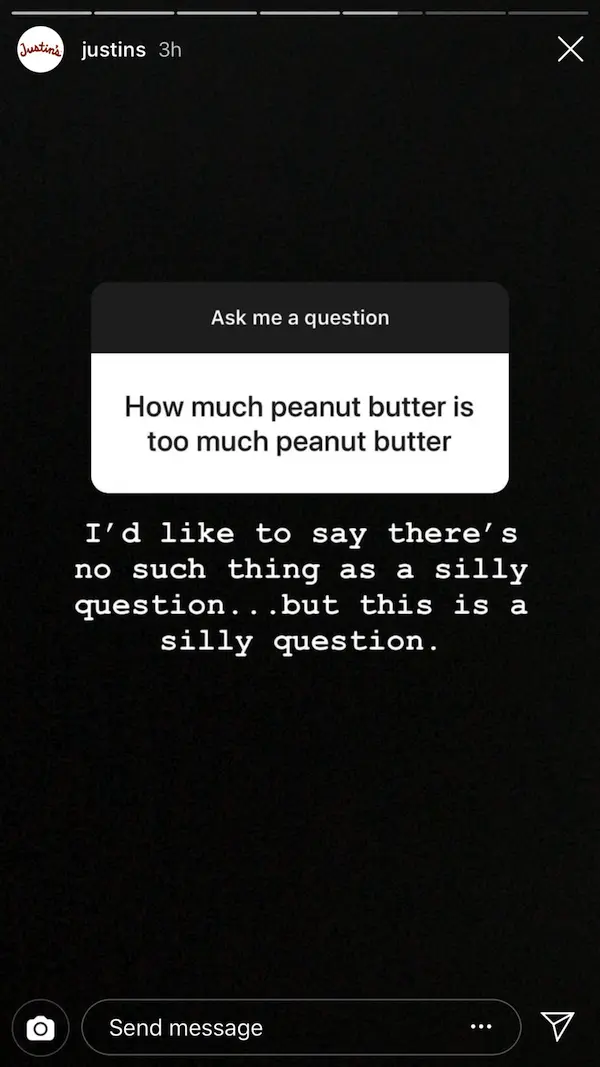
- Hashtags Getting your audience to post their own content with a hashtag of your choosing can help to boost your brand.
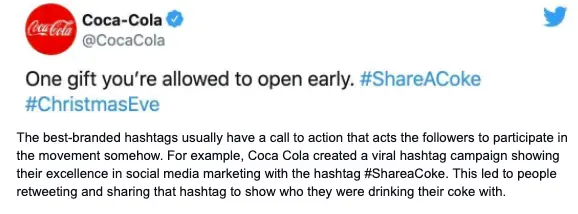
- Challenges Try designing a challenge around a product your business sells, or make up a dance or recipe that others can try.
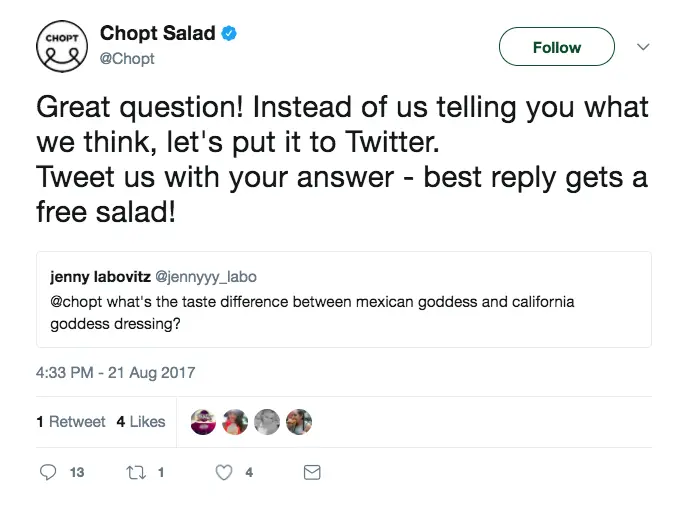
- Quiz Create a quiz on a platform like TryInteract.com. When people fill out the quiz, you will learn more about your audience’s buying preferences.
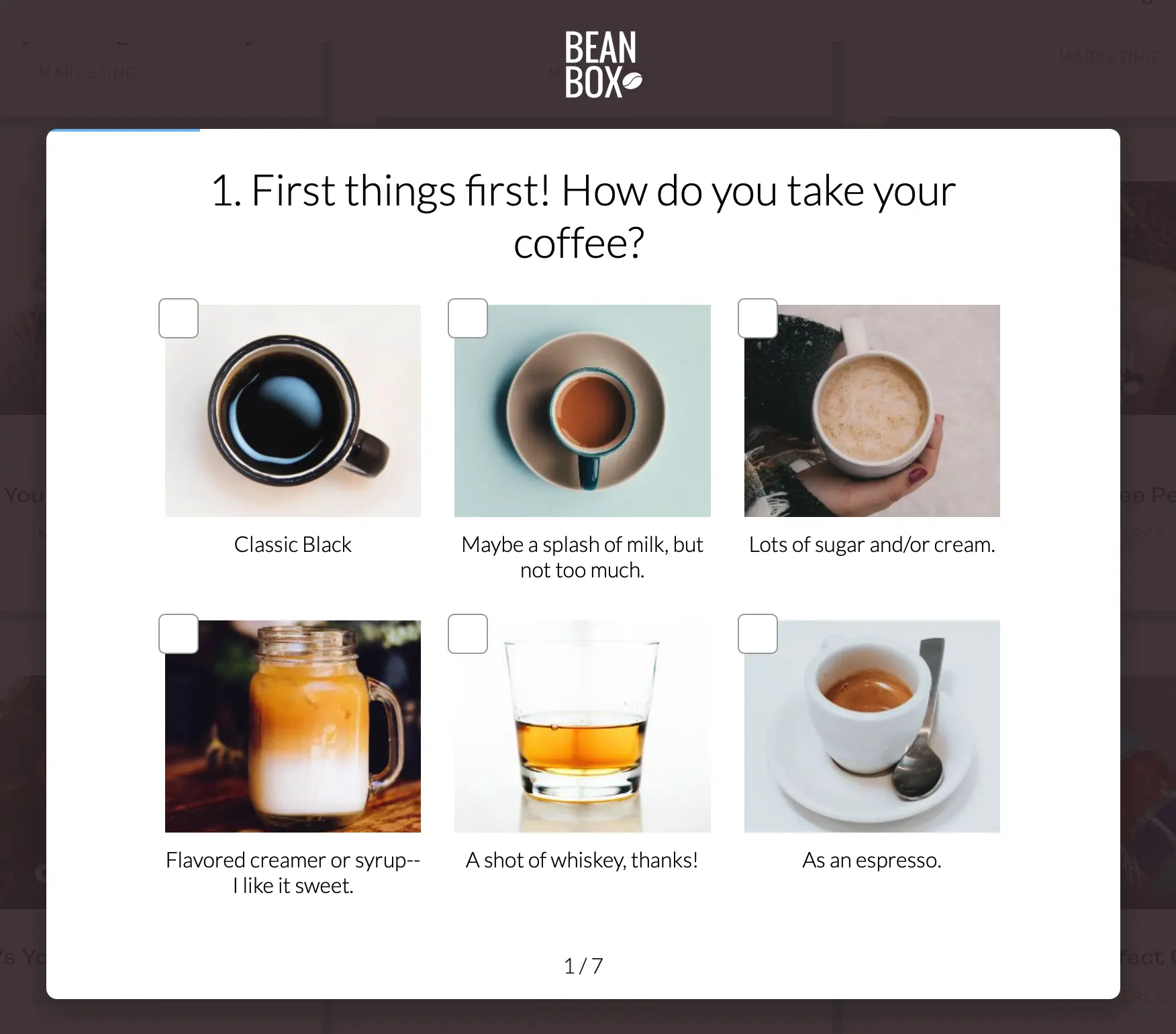
- Emails that ask for replies Get away from the “NO REPLY” email mentality. That is for Comcast and not for small businesses. Send an email that asks for real replies, such as: “What do you think about our new product… reply and let us know in one sentence!” Check out KickoffLabs trigger mails to automate the process and engage with leads.
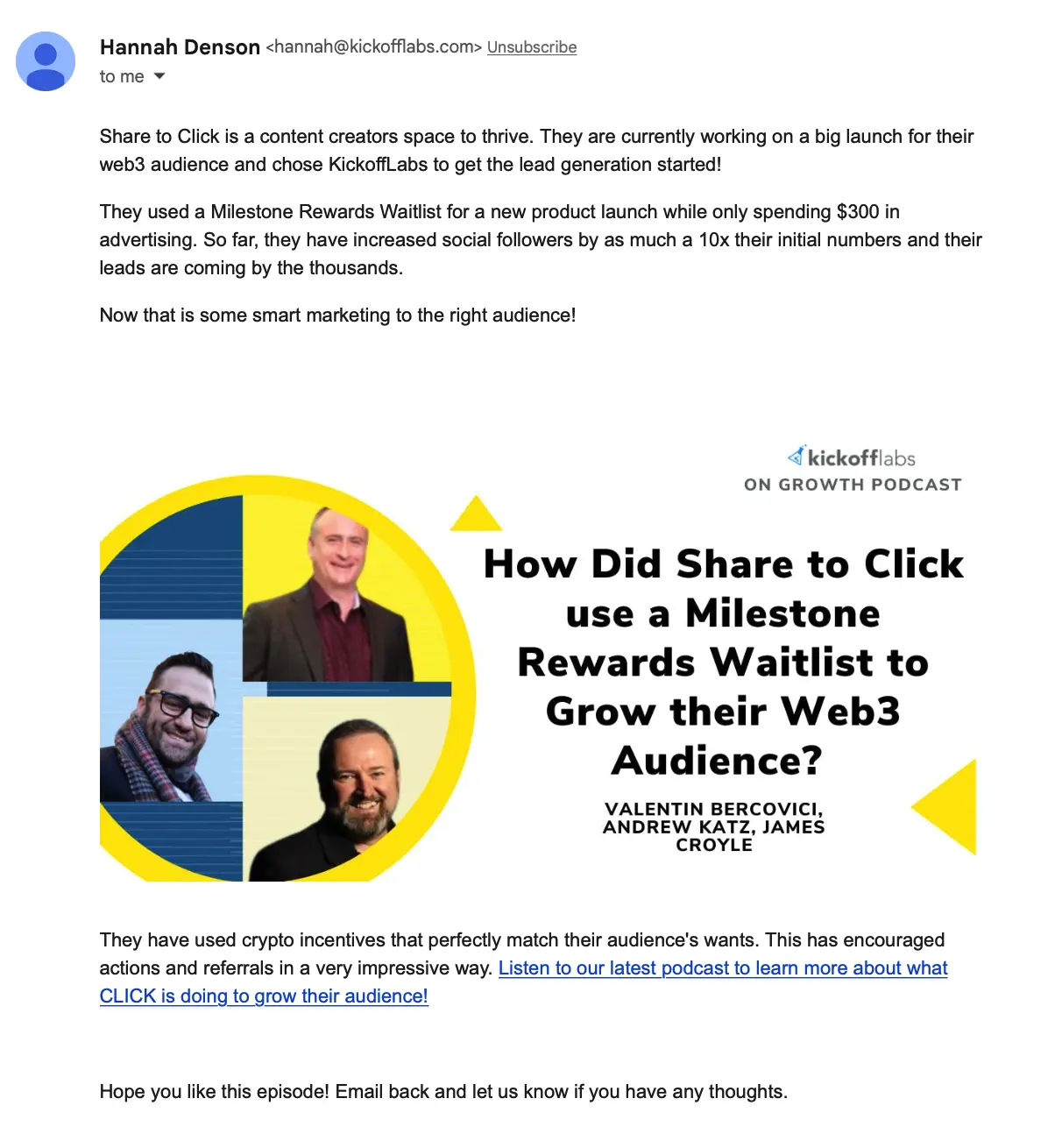
- Share stories Get people to share their personal stories about your product in an email reply, as part of a sweepstakes, or in a social media post.
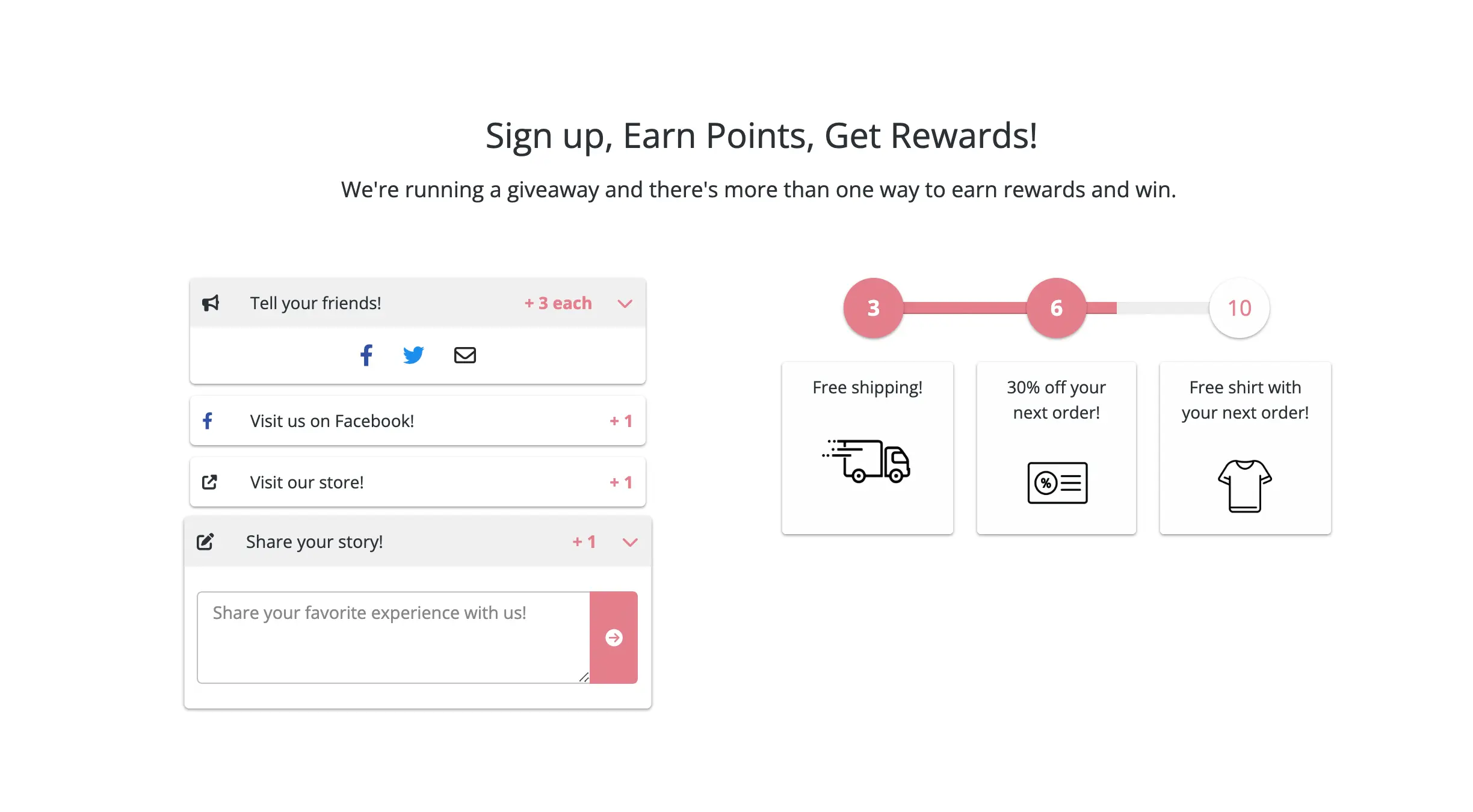
- Sweepstakes Run a Bonus Entry Giveaway like this one from KickoffLabs, which helps you grow your audience by having leads enter to win and then earn additional entries by referring friends and taking other actions. Check out getting started on your next Sweepstakes campaign.
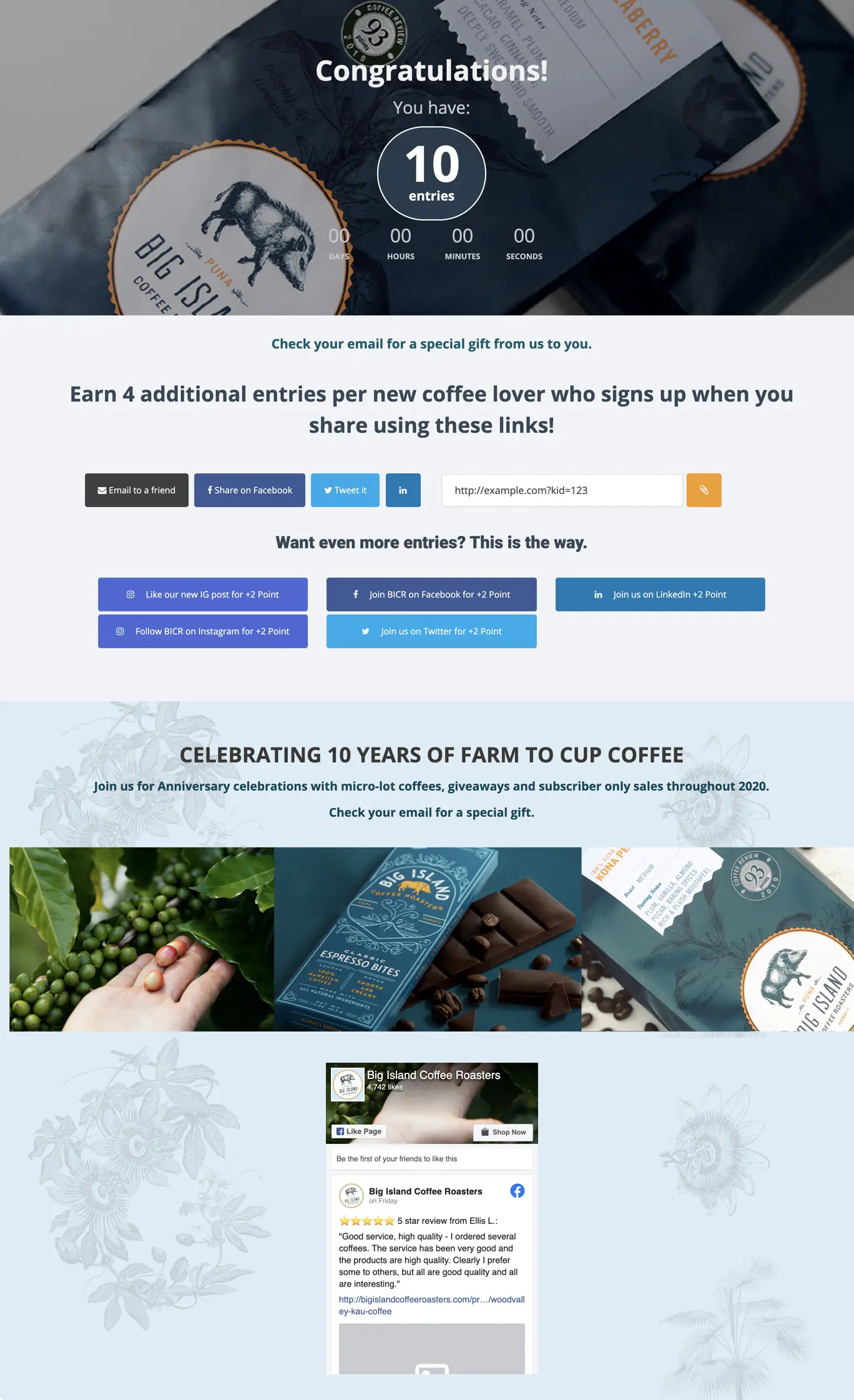
- Rewards campaign KickoffLabs has a Milestone Rewards Program that allows leads to enter to win prizes and unlock rewards by referring their friends and completing other tasks. Start rewarding your most loyal customers today.
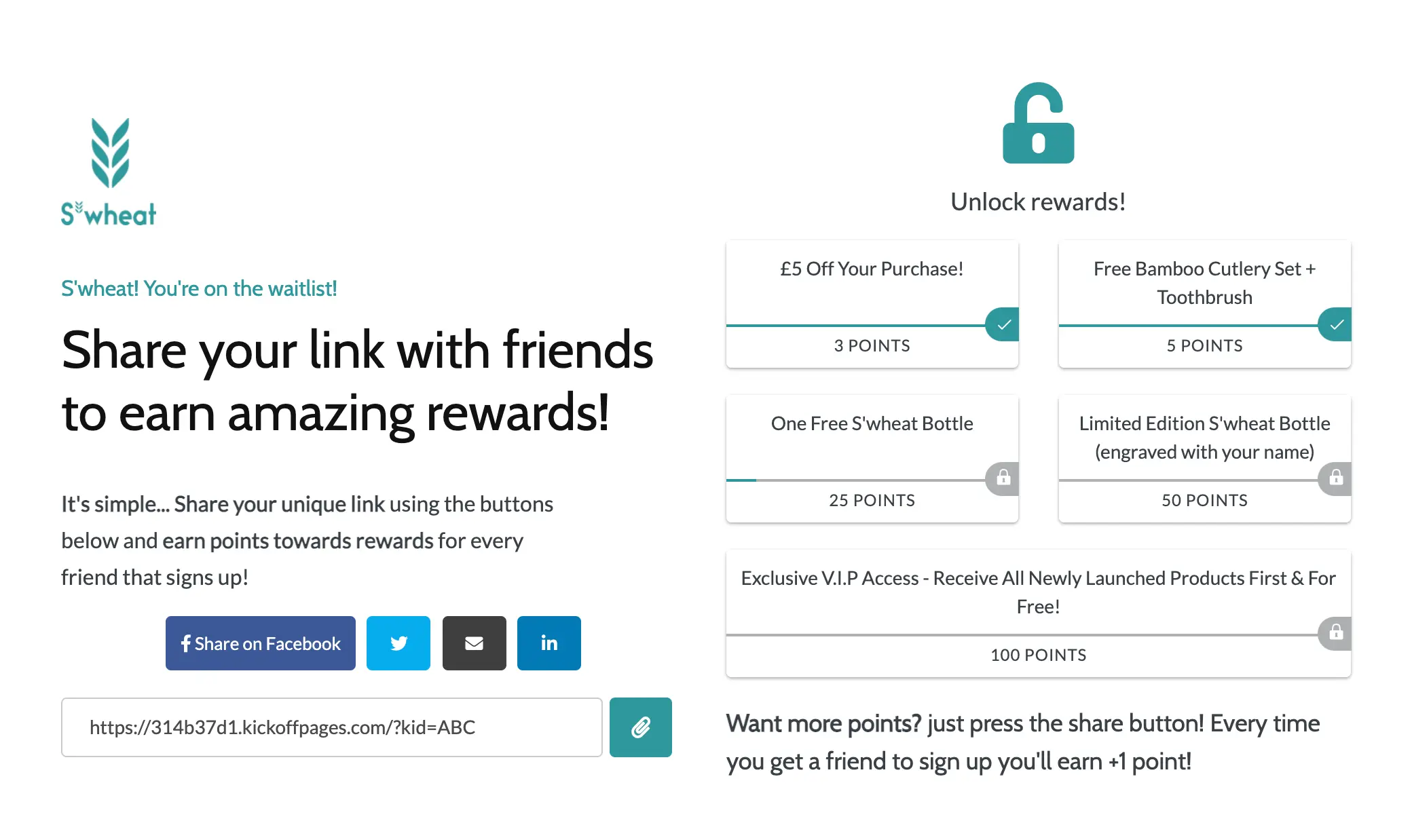
Additional Resources To Help With Your Engagement Marketing
Want some extra help getting started? There are plenty of tools out there that can help take the guesswork out of planning your next viral launch giveaway. Check out these easy to use KickoffLabs templates that make it simple for anyone…yes, even you…to get a viral launch giveaway up and running in as little as 10 minutes! No tech skills, or advanced marketing degree required.
Looking for even more? Head on over to the KickoffLabs giveaway resources page to find best practices on marketing your campaign for success. Check out our podcast full of useful advice and tips from other business owners who have built from the ground up with effective marketing campaigns!